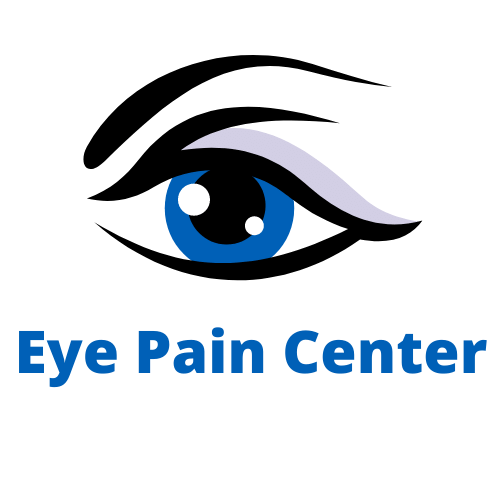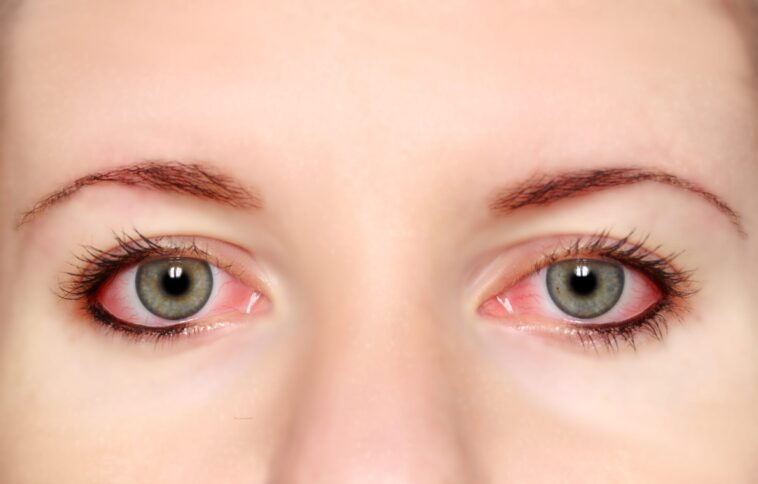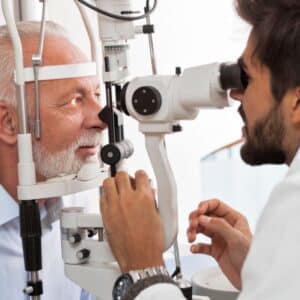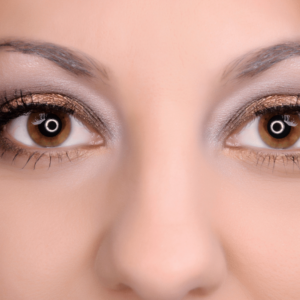What is Pink Eye?
Pink eye or conjunctivitis is an inflammation of the thin outer layer of the white part of your eye and the inner surface of your eyelid. It is marked by redness, itchiness, and discharge. Various factors, including viral or bacterial infections, allergies, smoke, dust, and wind, can result in this type of eye condition.
There are three main types of pink eye:
- Viral conjunctivitis: This is the most common type of pink eye and is caused by a viral infection, such as the common cold. Symptoms include red, watery eyes, a feeling of grittiness or burning in the eyes, and light sensitivity. It is highly contagious and spreads easily from person to person.
- Bacterial conjunctivitis: This type of pink eye is caused by bacteria and can be highly contagious. It usually causes a thick, yellow discharge from the eyes and is often accompanied by eyelid swelling and redness.
- Allergic conjunctivitis: This type of pink eye is caused by an allergy to things like pollen, pet dander, or dust. It often causes itching, redness, and tearing and may accompany other allergy symptoms like sneezing and a runny nose.
What are The Symptoms?
Symptoms of pink eye may vary depending on the cause; the most common symptoms include
- Redness in one or both eyes
- Itching or burning sensation in the eyes
- Excessive tearing or discharge from the eyes, which may be clear or cloudy and yellow
- Swelling of the eyelids
- Light sensitivity
- A feeling of grittiness or sand in the eye
- Crusting or matting of the eyelashes, primarily upon awakening
- Blurred vision
If these symptoms present for more than a few days or your vision changes, it’s best to see a doctor for diagnosis and treatment.
In some cases, pink eye can signify a more severe health issue and requires prompt treatment to prevent complications.
How to Treat and Prevent Pink Eye?
Treatment for pink eye varies and depends on the cause but generally includes general measures such as:
- Viral conjunctivitis: No specific treatment is available for viral conjunctivitis, so it is usually managed with self-care measures like applying a cool compress to the eyes and using artificial tears to relieve discomfort. Over-the-counter pain relievers may also be helpful. The infection should resolve on its own within 7-14 days.
- Bacterial conjunctivitis: Bacterial conjunctivitis can be treated with antibiotics by eye drops or ointments. It is vital to complete the course of antibiotics as prescribed by your doctor, even if symptoms have improved, to ensure that the infection has been fully treated.
- Allergic conjunctivitis: Allergic conjunctivitis can be treated with antihistamines, decongestants, or prescription eye drops. Over-the-counter or prescription nasal sprays may also help relieve other allergy symptoms.
Personal hygiene is the most crucial factor in preventing the transmission of pink eye. Practicing good hand-washing habits, not touching your eyes with your hands, and avoiding sharing personal items – such as towels, eye drops, and makeup – can help reduce the chances of getting infected with conjunctivitis.
If you wear contact lenses, it’s essential to clean them regularly and replace them as directed by your eye doctor. Controlling exposure to allergens can help prevent pink eye and other allergy symptoms if you have allergies.
How Long is Pink Eye Contagious?
The contagious period for pink eye depends on the condition’s underlying cause.
Viral conjunctivitis is generally considered contagious until symptoms have resolved, usually taking 7-14 days. Bacterial conjunctivitis is usually contagious as long as there is discharge from the eyes and until 24 hours after starting antibiotics.
Allergic conjunctivitis is not contagious.
Practicing good hygiene to prevent the spread of pink eye, including washing your hands frequently and avoiding touching your eyes.
If you have pink eye, you should also avoid sharing towels, pillowcases, and other personal items and avoid close contact with others, especially those with weakened immune systems.
Is pink eye Painful?
Pink eye can cause discomfort, but it is usually not considered painful. Symptoms may include itching, burning, or a feeling of grittiness or sand in the eye.
In some cases, there may also be mild pain or sensitivity to light. If you experience severe pain or vision changes, you must see a doctor as soon as possible, as these symptoms can indicate a more serious underlying condition.
Can the Pink Eye go Away On its Own?
In some cases, pink eye can resolve on its own without treatment. For example, mild cases of viral conjunctivitis usually clear up within 7-14 days without medical intervention. Allergic conjunctivitis can also improve on its own once the allergen is removed.
However, even if symptoms improve, it’s essential to see a doctor, as some cases can be caused by a more serious underlying condition that requires treatment.
In addition, prompt treatment of pink eye can help prevent complications and reduce the risk of spreading the infection to others.
When is it Safe to Go Back to School or Work?
The appropriate time to return to school or work after having pink eye depends on the underlying cause and the severity of the symptoms. In general, staying home is best until symptoms have improved and it’s no longer contagious.
For viral conjunctivitis, it’s usually safe to return to school or work once symptoms have resolved, which usually takes 7-14 days. For bacterial conjunctivitis, it’s usually safe to return to school or work after 24 hours of starting antibiotics as long as symptoms have improved.
For allergic conjunctivitis, it’s usually safe to return to school or work as soon as symptoms have improved, as the condition is not contagious.
If you have pink eye and are unsure when it’s safe to return to school or work, it’s best to consult your doctor, who can advise you on the best course of action based on your situation.
What Should I do with Unused Makeup?
If you have pink eye or any other eye infection, it’s important to avoid using any eye makeup, including mascara, eyeliner, and eyeshadow, until the infection has fully resolved. Sharing makeup or using makeup contaminated with bacteria or other pathogens can increase your risk of reinfection or spreading the infection to others.
If you have unused eye makeup that you have not used while you were infected with pink eye, it is generally safe to use once the infection has cleared up. However, it is a good idea to follow the manufacturer’s recommendations for replacing eye makeup to reduce the risk of infection. In general, most types of eye makeup, including mascara, should be replaced every 3-6 months.
If you have used eye makeup while infected with pink eye, it is best to replace it to reduce the risk of reinfection. Additionally, it’s a good idea to thoroughly clean your eye makeup brushes and applicators with soap and water to remove bacteria or other pathogens.
Should I Throw my Contact Lenses Out?
If you have pink eye and wear contact lenses, it’s essential to follow your eye doctor’s recommendations to manage your lenses during the infection. Sometimes, your doctor may advise you to stop wearing your lenses until the infection has resolved, especially if a bacterial or fungal infection causes the pink eye.
If you have been wearing disposable contact lenses, it’s best to throw them out and start with a new pair once the infection has cleared up, as the infection can persist on the surface of the lens. If you wear reusable contact lenses, it’s crucial to thoroughly clean and disinfect them according to the manufacturer’s instructions and your eye doctor’s recommendations and to replace them as directed.
In any case, it’s a good idea to avoid sharing your contact lenses or lens case with others, as this can increase the risk of spreading the infection. If you have any questions or concerns about managing your contact lenses during a pink eye infection, it’s best to consult your eye doctor for personalized advice.
What do I do if my Newborn Baby Has Pink Eyes?
If your newborn baby has pink eye, seek medical attention immediately. Your doctor will examine your baby, determine the cause, and prescribe appropriate treatment. Follow your doctor’s advice on managing contact lenses and eye drops, and clean your baby’s eyes regularly with a saline solution. To prevent the spread of the infection, wash your hands frequently and avoid close contact with your baby’s eyes.
When Should I See a Doctor?
You should see a doctor if you experience any symptoms of pink eye, especially if:
- Your symptoms persist or worsen after a few days of home treatment
- Your vision is affected, or you have severe eye pain
- Your eye is severely red, swollen, or discharging pus
- You have a weakened immune system, such as from HIV or cancer treatment
- You have frequent or recurring pink eye infections
- You wear contact lenses and experience pink eye symptoms
- You have a newborn or young child with pink eye symptoms
A prompt evaluation and diagnosis by a doctor can help determine the cause of your pink eye and ensure the appropriate treatment to prevent serious complications, including vision loss. You should consult your doctor for personalized advice and guidance if you have any concerns or questions.
Summary
Pink eye is a highly contagious eye infection that can spread easily from person to person through contact with eye discharge, contaminated objects, or through the air when an infected person coughs or sneezes. The length of time the pink eye is contagious can vary depending on the underlying cause of the infection and the type of treatment received.
Bacterial pink eye is typically contagious until 24 hours after starting antibiotics. In contrast, viral pink eye can be contagious for several days to a week after symptoms first appear or until the symptoms have resolved. Allergic conjunctivitis is not contagious.
The best way to prevent the spread of pink eye is to practice good hygiene habits, like washing your hands regularly and refraining from touching your eyes or sharing personal items such as towels, eye drops, and makeup.
If you have pink eye symptoms, it’s best to stay home from work or school and consult your doctor for prompt evaluation and treatment.






